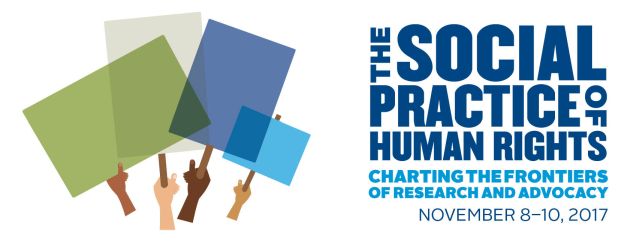
Paper/Proposal Title
Overview of Current Human Rights Challenges in the Philippines and the People’s Response
Start Date
11-8-2017 1:30 PM
Keywords
Philippines, Duterte, Human Rights, JustPeace, Conflict
Abstract
The Philippines is an agricultural resource-rich country in Southeast Asia but whose economy and society remain dictated by foreign interests and local elite while the majority are steeped in worsening poverty and inequality.
It is thus not surprising that it is host to the longest-running revolution in Asia. The decades-old armed rebellion has been waged among national liberation forces, notably the Communist Party of the Philippines - New People’s Army - National Democratic Front of the Philippines (CPP-NPA-NDFP) and Moro forces — the Moro Islamic Liberation Front (MILF) and the Moro National Liberation Front (MNLF).
Successive Philippine regimes have employed militarist approaches to end rebellion; they have not only failed, but also resulted in extrajudicial killings, displacement of peoples, and other human rights violations.
The overwhelming victory of Rodrigo Roa Duterte in the 2016 presidential elections underscored the Filipino people's strong rejection of the previous regimes and great desire for change. Worsening poverty, corruption, and criminality were key issues during Duterte’s campaign.
Events following Duterte’s assumption as the 16th president of the Philippines have seen changes that in some areas are encouraging and in others deeply troubling. The president’s careless dismissal of human rights and his public presentation of those concerned with human rights issues as enemies have kindled the culture of impunity to which the state security forces have grown so accustomed.
The more positive aspect of the current administration is related to the seriousness with which the president has committed himself to principled negotiations toward peace between his government and the rebels. This is an opportunity for the people to advance concrete proposals on how to address chronic poverty, hunger, labor export, rural deprivation, homelessness, wealth disparity, and environmental deterioration, among other issues affecting them.
Overview of Current Human Rights Challenges in the Philippines and the People’s Response
The Philippines is an agricultural resource-rich country in Southeast Asia but whose economy and society remain dictated by foreign interests and local elite while the majority are steeped in worsening poverty and inequality.
It is thus not surprising that it is host to the longest-running revolution in Asia. The decades-old armed rebellion has been waged among national liberation forces, notably the Communist Party of the Philippines - New People’s Army - National Democratic Front of the Philippines (CPP-NPA-NDFP) and Moro forces — the Moro Islamic Liberation Front (MILF) and the Moro National Liberation Front (MNLF).
Successive Philippine regimes have employed militarist approaches to end rebellion; they have not only failed, but also resulted in extrajudicial killings, displacement of peoples, and other human rights violations.
The overwhelming victory of Rodrigo Roa Duterte in the 2016 presidential elections underscored the Filipino people's strong rejection of the previous regimes and great desire for change. Worsening poverty, corruption, and criminality were key issues during Duterte’s campaign.
Events following Duterte’s assumption as the 16th president of the Philippines have seen changes that in some areas are encouraging and in others deeply troubling. The president’s careless dismissal of human rights and his public presentation of those concerned with human rights issues as enemies have kindled the culture of impunity to which the state security forces have grown so accustomed.
The more positive aspect of the current administration is related to the seriousness with which the president has committed himself to principled negotiations toward peace between his government and the rebels. This is an opportunity for the people to advance concrete proposals on how to address chronic poverty, hunger, labor export, rural deprivation, homelessness, wealth disparity, and environmental deterioration, among other issues affecting them.


